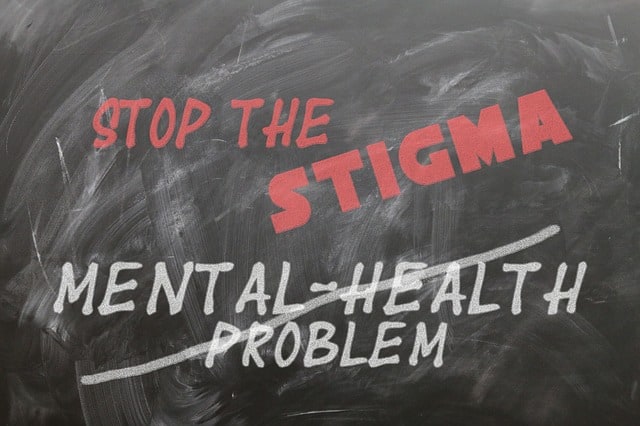by mental health nurse Ashley Peterson.
Sometimes the things that are most important in life are the most difficult to talk about, especially when it comes to mental health. Yet all silence does is make the hard stuff even harder. The more we talk about mental health the easier it gets, and that’s how change can start to happen.
That’s why I have chosen to raise my own voice about mental health issues. I have an amazing volunteer gig leading suicide awareness workshops for local high school students, teaching them about things like warning signs and ways to get help. I always start off the presentations by telling students that my knowledge about suicide comes not only from my work as a mental health nurse, but also because I have depression and am a suicide attempt survivor. Is it easy to get up in front of a classrooms full of teens and share that? Not really. Sometimes I worry about being judged for throwing down the suicide attempt card, especially right off the bat. So why do I do it? Well, that’s easy. If I’m telling students that it’s important to get down and dirty and talk about suicide, it would be pretty hypocritical to keep my own story of suicide hidden away in the dark. If I’m going to talk the talk, I need to go all in.
My own story goes something like this. My first episode of depression happened 10 years ago. I had been a nurse for a couple of years at that point, and in my head mental illness was something that happened to my patients, not to me. I realized that I was struggling, but I didn’t want to tell anyone, because I thought that since I helped people with depression all the time at work I should be able to take care of myself. I was 100% wrong.
I became increasingly desperate as I battled with the monster of my depression on my own. Finally it got to the point that ending my life seemed like the only option. Sometimes suicide is glorified and made out to be an easy exit from life’s problems, but the reality is far messier. I ended up in emergency ward, where I was given the option of drinking a revolting charcoal concoction or having a tube shoved up my nose and down to my stomach so they could pour in said charcoal. Once my stomach was cleared, I was sent to the psych ward and locked in a seclusion room. The desperation to end my life didn’t stop there, and I still have crooked scars from where I tried to cut my wrists with an eggshell, the only thing I could get my hands on that was even remotely sharp. My ongoing suicidality earned me a trip to the psychiatric Intensive Care Unit, where I was put on constant observation, meaning I was watched even when using the toilet. There’s nothing glorious or easy about that.
Why do I choose to share this with you, or with my students? I want to lead by example, and spread the message that it’s okay to talk about mental health issues that may seem scary, embarrassing, extreme, attention-seeking, selfish, overdramatic, or whatever label someone might think to attach. If even one person feels comfortable seeking out help because I have shared my story, then I’ve done what I set out to do. And if my ugly suicide attempt story makes someone reevaluate idealized views of suicide, that’s great too. Suicide is the 2nd leading cause of death among youth aged 15-24, so it is absolutely necessary that we have these uncomfortable conversations.
There are so many places you can turn to if you want to talk about suicide or other mental health issues, get some reliable information, or find supportive messaging. You can reach out in person, by ‘phone, by text, or online; the how is less important than actually making that connection. Aside from local crisis services available in your area, here are just a few ideas:
- SANE Mental Health Charity
- The Jason Foundation
- Grassroots Suicide Prevention
- The Lifeline Canada
- Teen Mental Health
- U Matter
- Your Life Counts
- Youthspace Canada
- Kids Help Phone Canada
- National Suicide Prevention Lifeline (United States)
Whether you choose to reach out to a friend, teacher, counsellor, or online resource, the most important thing is to start the conversation. I learned the hard way that silence not only doesn’t work, it makes things worse. I have a voice, and I am choosing to use it. The most effective way to fight stigma around mental illness is talk about it, and in particular for people with mental illness to share their stories. So I hope you will join me in speaking up.
About the author: Ashley Peterson is a registered nurse who works with adults experiencing mental illness and substance use disorders. Her therapeutic approach emphasises recovery and empowerment, and this is strongly influenced by her own experience with major depressive disorder. She writes about her own experiences in academic nursing journals and on her blog.
You can find Ashley on Twitter @MH_at_home or on her blog at mentalhealthathome.wordpress.com.
image by geralt under CC0 license




